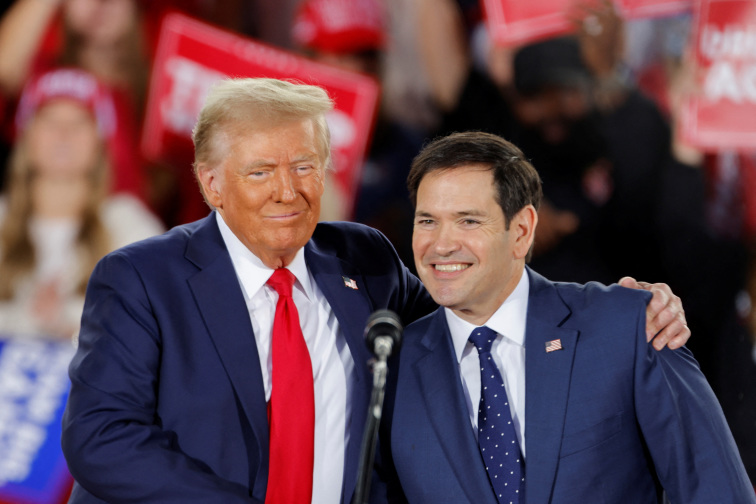Carla Joustra, NCC Court of Appeal Judge attends proceedings as a Dutch court rules in Shell's appeal over a 2021 court order to drastically deepen planned greenhouse gas emission cuts, in The Hague, Netherlands November 12, 2024. REUTERS/Yves Herman
(Reuters) - A Dutch appeals court on Tuesday dismissed a landmark 2021 ruling, ordering oil and gas giant Shell to accelerate carbon reduction efforts that was seen as a turning point in climate litigation.
Here are the main parts of the verdict and reaction.
SHELL IS OBLIGED TO REDUCE CO2 EMISSIONS
The court said protection against global warming is a basic human right, which also means companies such as Shell have an obligation to reduce their greenhouse gas emissions.
It also said that courts can order companies to accelerate climate policies, even if targets for them are not specifically set in international treaties or national law.
"Products from companies like Shell have caused the climate problem. These companies have a human rights obligation to everyone in the world to reduce their CO2 emissions," Presiding Judge Carla Joustra said.
SHELL IS NOT AT RISK OF MISSING TARGETS FOR ITS EMISSIONS
The court said reductions in Shell's direct emissions (known as Scope 1 and 2) are in line with the demands made by climate activists in the court case.
The original 2021 ruling ordered Shell to cut its absolute carbon emissions by 45% by 2030 compared to 2019 levels, including those caused by the use of its products (known as Scope 3).
The court said documents had shown emissions from Shell's own production process were 31% below 2016 levels last year, and added that Shell targets a 50% reduction by 2030.
GENERAL TARGETS ARE NOT HELPFUL, COURT SAYS
The court agreed with Shell that an absolute order to reduce Scope 3 emissions could have an adverse effect, as it could lead to customers switching from using Shell's gas to more polluting coal.
And if Shell would start selling gas to a customer that moves away from coal, that would increase Shell's Scope 3 emissions but would lower emissions worldwide.
"In general, any reduction in greenhouse gas emissions is positive to mitigate climate change," Joustra said. "But that does not mean that a reduction order for Shell has that same effect."
NO SPECIFIC TARGET CAN BE SET
The court said it had not been able to determine a fitting reduction target for oil and gas companies, based on science and available data.
"The percentages mentioned in reports are so wide-ranging, that a civil court cannot determine to what reduction target Shell should be held," Joustra said.
"Available data do not give enough information to force Shell to reduce its emissions with a certain percentage in 2030."
FRIENDS OF THE EARTH NETHERLANDS DIRECTOR DONALD POLS:
"This hurts. The judge did state that large companies such as Shell have a responsibility to respect human rights, and to reduce CO2 emissions in accordance with international climate agreements. But the judge did not state a specific reduction percentage and couldn't see a reduction percentage and therefore decided not to go into the claims."
SHELL CHIEF EXECUTIVE OFFICER WAEL SAWAN:
"We are pleased with the court's decision, which we believe is the right one for the global energy transition, the Netherlands and our company. We are making good progress in our strategy to deliver more value with less emissions."
FRIENDS OF THE EARTH ACTIVIST NEELE BOELENS (23)
"To be honest, I was really disappointed. I was almost crying. At first it looked really good for us but then it just went down hill. It's a setback for climate action. We will fight back and we will come back strong."
CITIGROUP ANALYSTS:
"Today's ruling from The Hague Appeals Court is, in our view, a best case outcome for Shell. While success with the Appeals Court may not be the end of the legal process, by signalling that company strategy is now more firmly in the hands of shareholders, we believe it has a positive impact."
(Reporting by Bart Meijer and Stephanie van den Berg; editing by Barbara Lewis)











News magazine bootstrap themes!
I like this themes, fast loading and look profesional
Thank you Carlos!
You're welcome!
Please support me with give positive rating!
Yes Sure!